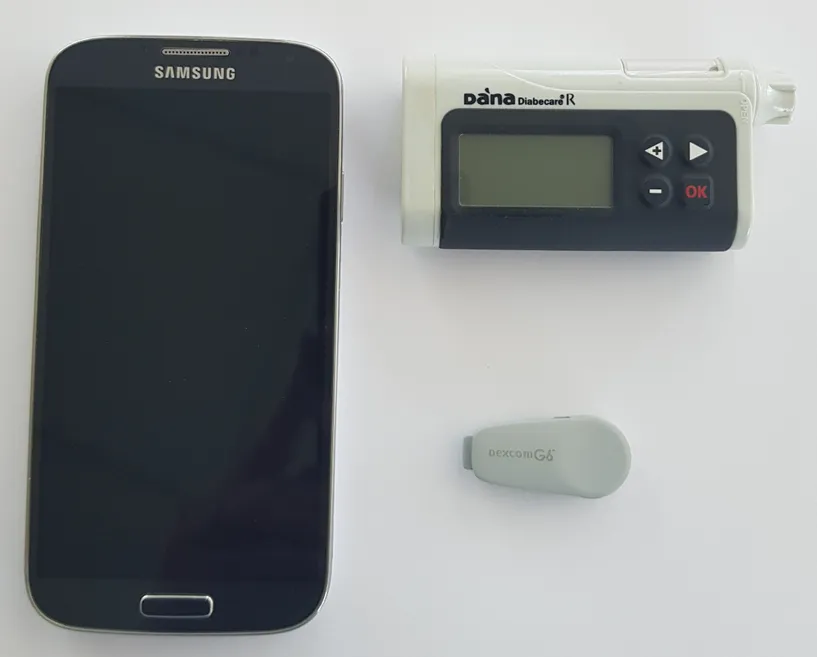Patients with type 2 diabetes benefit from wearing an 'artificial pancreas' run by a computer algorithm, a new study has found.
The device helped people monitor how much sugar was in their blood and automatically administered the exact amount of insulin needed to bring high sugar levels down. It even learned their eating habits to find patterns in glucose intake.
After 20 days with the artificial pancreas, patients had a more consistently safe blood glucose level and had reduced their risk of lengthy 'hypos' – serious symptoms that occur when a person has dangerously low sugar levels.
The study focussed on patients living with type 2 diabetes and kidney failure, a 'particularly vulnerable group' according to Dr Charlotte Boughton from the Wellcome Trust-MRC Institute of Metabolic Science at the University of Cambridge, who led the research.
"Managing their condition – trying to prevent potentially dangerous highs or lows of blood sugar levels – can be a challenge," she said.
"There’s a real unmet need for new approaches to help them manage their condition safely and effectively."
Read more about type 2 diabetes:
- Insomnia, depression and smoking are risk factors for type 2 diabetes
- High intake of fruit and veg 'reduces type-2 diabetes risk by 50 per cent'
In these patients, their kidneys have become damaged and can no longer 'clean' the blood by removing waste products from the body. While some patients with kidney failure can receive a transplant, others will spend the rest of their life on a dialysis machine.
Nine out of ten participants said that using the artificial pancreas had lessened the time they had to spend managing their diabetes, and 87 per cent reported that using the device made them feel less worried about their blood sugar levels.
"Not only did the artificial pancreas increase the amount of time patients spent within the target range for the blood sugar levels, but it also gave the users peace of mind," said senior author Professor Roman Hovorka, also from the Wellcome Trust-MRC Institute of Metabolic Science.
"They were able to spend less time having to focus on managing their condition and worrying about the blood sugar levels, and more time getting on with their lives."

Published in Nature Medicine, the new research compared the artificial pancreas against insulin therapy, the standard treatment for diabetes in patients with kidney failure.
However, this therapy relies on the patient receiving the correct insulin dosage at the right time. Figuring out the right dosing regimen for each patient can be difficult, but with the artificial pancreas, an adaptive computer algorithm does all the work.
"The algorithm receives real-time information about the glucose level from the glucose sensor and calculates the amount of insulin which is then given by an insulin pump, worn on the body, to keep the glucose within the target range," Boughton told BBC Science Focus.
"The algorithm adapts to an individual user’s trends and patterns in glucose levels and their insulin requirements over time."
Read more about the kidneys:
- Science’s new weapon against kidney disease: Tiny lab-grown organoids
- Home urine test app could help to detect kidney disease early
The pancreas system is made up of two small wearable devices: a sensor to monitor blood sugars and a pump infusion set to administer insulin. These devices are connected via Bluetooth to an app on the patient's smartphone, where the data is run through an algorithm. If the algorithm detects that the user's blood glucose level is too high, it'll send out a signal to the pump to adjust the amount of insulin being given.
Boughton said there's no need to worry if you're out of data. "The devices communicate using Bluetooth but do not require WiFi or a mobile signal. If the phone is out of range or out of battery, the insulin pump continues to give insulin but in a non-automatic way."
But when will patients be offered an artificial pancreas?
"We are also looking at implementing the artificial pancreas within a hospital so that it can be used by people admitted with type 2 diabetes; the aim of the implementation project is to try to get the system reimbursed by the NHS," explained Boughton.
About our expert
Dr Charlotte Boughtonis a clinical research associate and lecturer at the Wellcome Trust-MRC Institute of Metabolic Science, based in the University of Cambridge. Boughton is part of a group research project on diabetes technology, specifically working on the development and clinical testing of the artificial pancreas.
